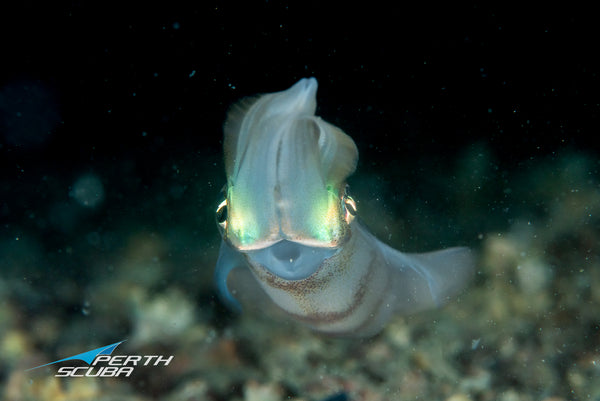Squid eyes are amazing and here's why
Squid eyes are fascinating organs that have evolved to provide these marine creatures with exceptional vision. Squids belong to a class of mollusks called cephalopods, and their eyes are highly developed and specialized for their underwater environment.
Here are some key points about squid eyes:
-
Structure: Squid eyes have a similar basic structure to vertebrate eyes, with a lens, iris, and retina. However, they are different in certain aspects.
-
Large Size: Squid eyes are relatively large in proportion to their body size. Some species of squid have eyes that can reach up to 25 cms in diameter, making them the largest eyes in the animal kingdom.
-
Complex Lens: The squid's lens is rigid and elongated, unlike the flexible lenses found in most vertebrate eyes. This rigid structure helps maintain the shape of the eye underwater and prevents distortion caused by water pressure.
-
Excellent Vision: Squid have excellent visual acuity and can detect polarized light, allowing them to see objects clearly even in the dimly lit depths of the ocean. Their eyes are particularly adapted for detecting movement, which is crucial for hunting and avoiding predators.
-
Colour Vision: Squid have color vision and can perceive a wide range of colours. They possess a complex visual system that allows them to discriminate between different wavelengths of light.
-
Binocular Vision: Squid eyes are positioned on either side of their head, giving them a wide field of vision. Although each eye sees independently, the squid's brain processes the visual information from both eyes to create a composite image and provide depth perception.
-
Retina and Photoreceptors: The squid's retina contains two types of photoreceptor cells—rods and cones. Rods are responsible for low-light vision and detecting motion, while cones are specialized for color vision and high-resolution details.
-
Eye Movement: Squids can move their eyes independently of each other. They can rotate their eyes and change the orientation to focus on specific objects or track movements in different directions.
Overall, squid eyes are remarkable adaptations that allow these cephalopods to thrive in their marine environment. Their large size, complex lens, excellent vision, and unique features contribute to their ability to navigate, hunt, and communicate effectively underwater.



